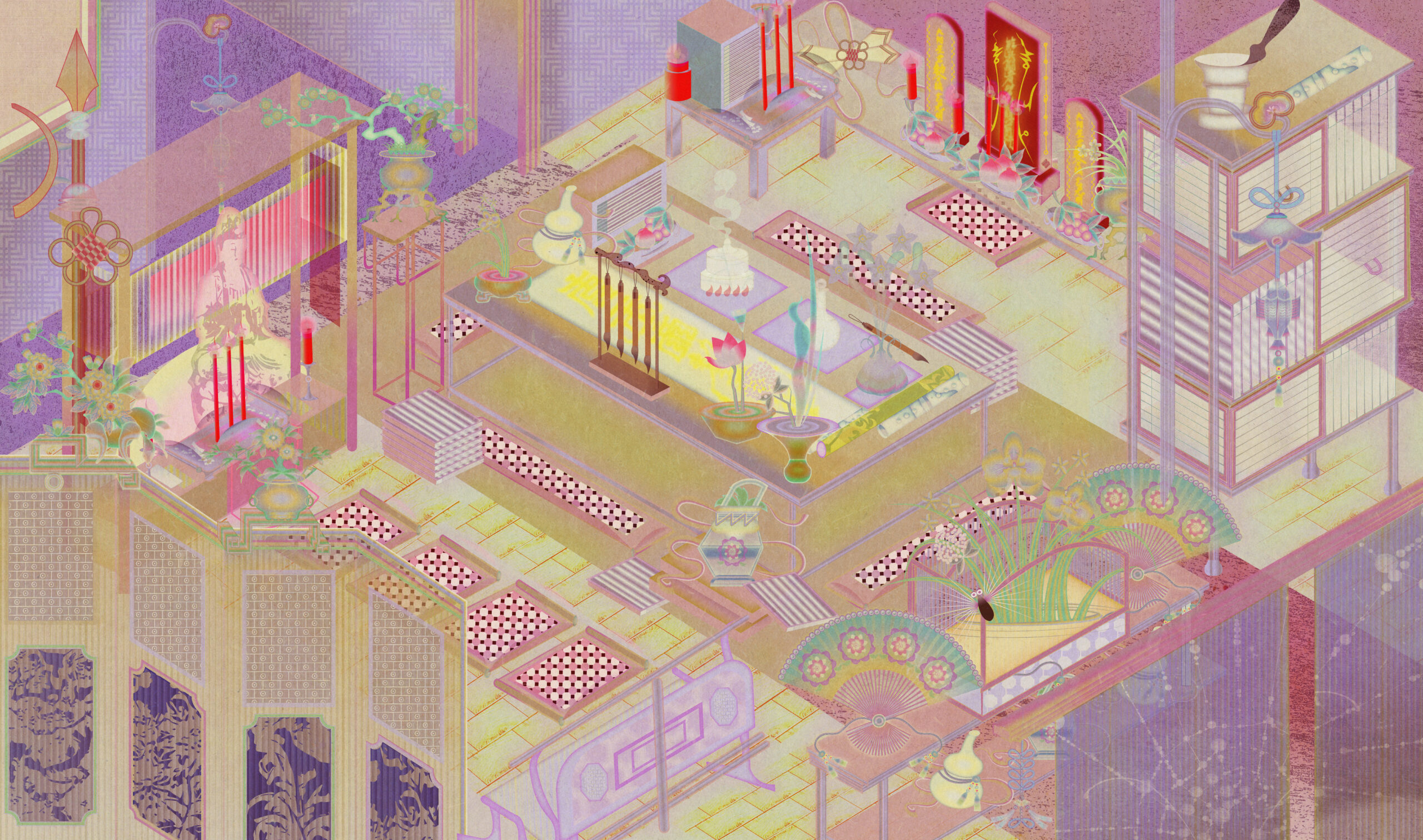CHEN YUJUN: REMEMBERING THE QIAOXIANG
| November 11, 2012 | Post In LEAP 17

My hometown is near Putian, Fujian. The village is a little bit like an island: past the Mulanxi river, in the hills, surrounded by mountains. Because the village is in the foothills, there are no fields for farming. It is over 30 kilometers from the sea, so fishing isn’t convenient either. The villagers live off of pipa, longyan, and other fruits they grow. People like to joke that there is a reason we eat porridge all day: there is so little rice that all we can do is make soup and then scatter a few grains of rice in it. Sweet potatoes replace rice as the staple food. Everyone has to leave home to earn any kind of living.
In the late nineteenth and early twentieth century, a lot of the people emigrated to Southeast Asia. My grandmother’s brother was a human trafficker, so he would collect the people who wanted to go to Southeast Asia and sail them over there. The first generation to go there had it really hard. People either went to work on rubber plantations or in mines. But they were hard working and savvy, and later a lot of them went into estate management. We have a special name for the people who crossed over: “overseas Chinese” (zouhuaqiao). Our village also became a “diaspora hometown” (qiaoxiang) and gradually formed its own unique “diaspora hometown culture” (qiaoxiang wenhua). Southeast Asian culture has had a big impact. For example, in Fujian people like to use decorative mosaics strongly influenced by the Islamic style. Villagers actually rarely understand the background behind it; they just think it looks beautiful. But this kind of aesthetic sense has been handed down from an earlier generation that went to Southeast Asia, an indication of modernity and wealth.
Another unique aspect of village culture is the enthusiasm for religious worship and sacrifice. Before the Spring Festival, on the morning of the 25th on the lunar calendar, people pray and make sacrifices between midnight and five or six in the morning. The whole family worships and makes sacrifices. We invite priests to perform the ceremonies, and every year we hurry back from Hangzhou on the night of the 24th, worshipping into the early morning without sleep. It was like this especially before our grandma died; it was an opportunity for all of our family’s generations to be together in one place. Ceremony and ritual free people from city life. A lot of my peers who work away from home also come back for this same reason. My mother lives in the city with me to help us with our son. She really misses home. Going back is a big to-do; you have to pray for this and pray for that, and it all does have a sort of blindness to it, but it makes her feel fulfilled. The village patriarch, elected by a fortuneteller, manages all of the ceremonies in the village; a different person is elected each year. The supernatural “forces” in the village all have something to do with family, more or less. We understand this concept of family too. We are always concerned with what our cousins are doing; we all lived and grew up together and did all of the family activities together, so as the years pass we understand the relationships our fathers had with their brothers. We know what responsibilities we must take on now. But this is a concept that will be lost on kids of the next generation; they are not growing up in this kind of environment. Sometimes I will purposely bring my son back for a visit, but any deliberate efforts to instill this concept in him will only be a sort of ornamentation and won’t become a deeper part of his consciousness.
A decade into living in Hangzhou, my brother (Chen Yufan) and I have discovered that our past experiences feel even realer to us. They are what ultimately still bring up a kind of sensitivity. Every time we return home, something touches the very roots of our creative nerves. Mulan River Project has been a reexamination of our experience growing up, of the history of our village, of the state of its natural environment and culture. Looking back gives us a more truthful creative attitude. Many of the essays written for Mulan River Project mention nostalgia. Generally speaking, this is a kind of nostalgia, yes. But in terms of the principle behind our work, it is not merely a general reflection on modernity. It is an attempt to describe the specific uniqueness of our southeast coastal hometown culture.

